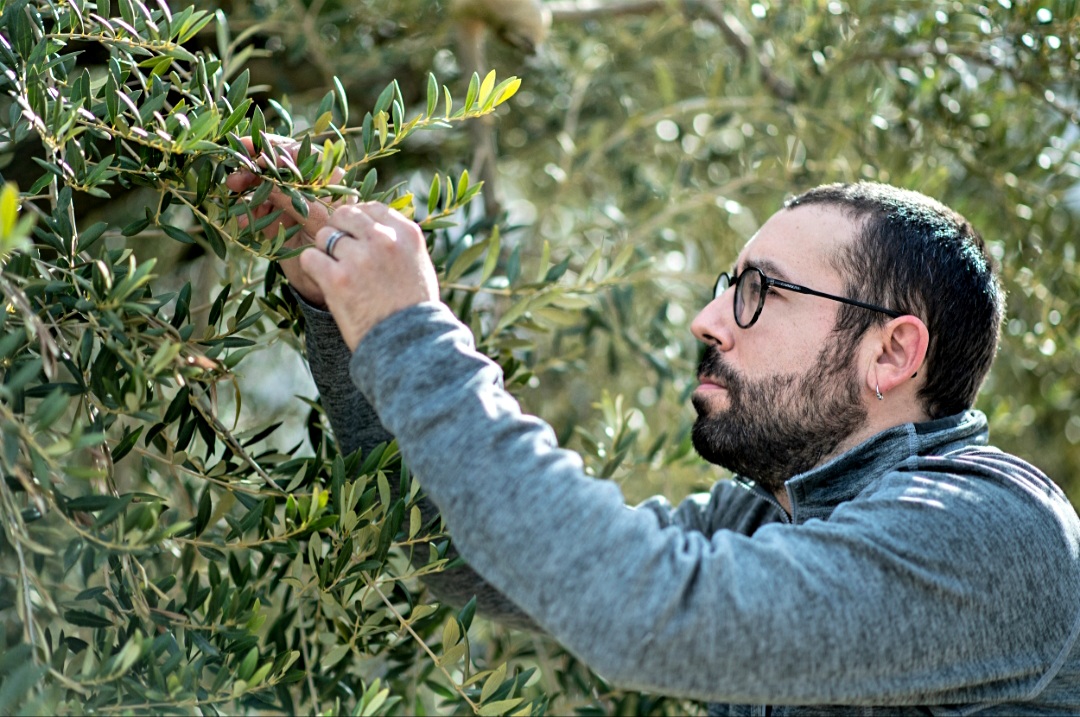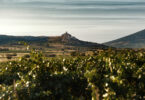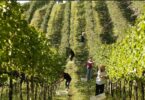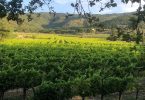The Wolf Post, supported by a Cultural Association, offers a professional service with free access, without subscription.
For this reason, a donation would also be a sign of appreciation for our work.
Molí Coloma, located in the Catalan municipality of Subirats, is an old paper mill from the end of the 15th century, surrounded by vineyards and olive groves.
Molí Coloma crops are located in Penedès and in the lands of Montsant, Priorat and Tarragona. These are small plots of land, worked by farmers with the traditional method and high quality standards.
The crop is fed by an irrigation system and by constant pest and disease control, in order to use the minimum amount of pesticides.
The olives are harvested, directly from the tree (it does not fall to the ground), when they are at the optimal point of ripeness. A maximum of one hour elapses between the harvest and the milling of the fruit. Once cleaned of leaves and impurities, the olives are ground, obtaining a homogeneous paste. This paste is incorporated into the blender, where it is kept at a temperature between 25ºC and 27ºC to leave all its original aromas intact. With a subsequent centrifugation process, the pure flower of the olive oil is separated from the paste.
The care taken in the creation of a high quality Extra virgin olive oil places Molí Coloma among the best oil companies of international level. Because everything starts from the olive groves but it is only the daily attention from the field to the bottling that makes an artisanal EVOO a product of excellence.
Molí Coloma makes use of Albert Hinojosa, oil master who works daily to create a product capable of competing on world markets at a high level. Hinojosa talks about the world of Molí Coloma in this interview.
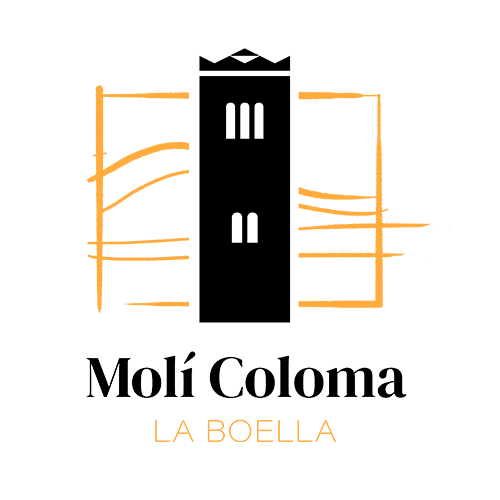
©Molí Coloma
Located in the charming municipality of Subirats, in Catalonia, Molí Coloma produces quality Extra Virgin Olive Oil. When was the company born and what philosophy characterizes its production?
Molí Coloma was born from the vast experience of the Sumarroca family in the development of various crops, including the olive tree. They have generated a legacy along with hundreds of years of history and tradition dating back to the time of the Phoenicians.
We work with the intention of bringing product excellence to tables all over the world, giving importance to values such as sustainability and biodiversity and, above all, enhancing our land and betting, clearly, on the most influential aspect of our product, the Mediterranean climate.
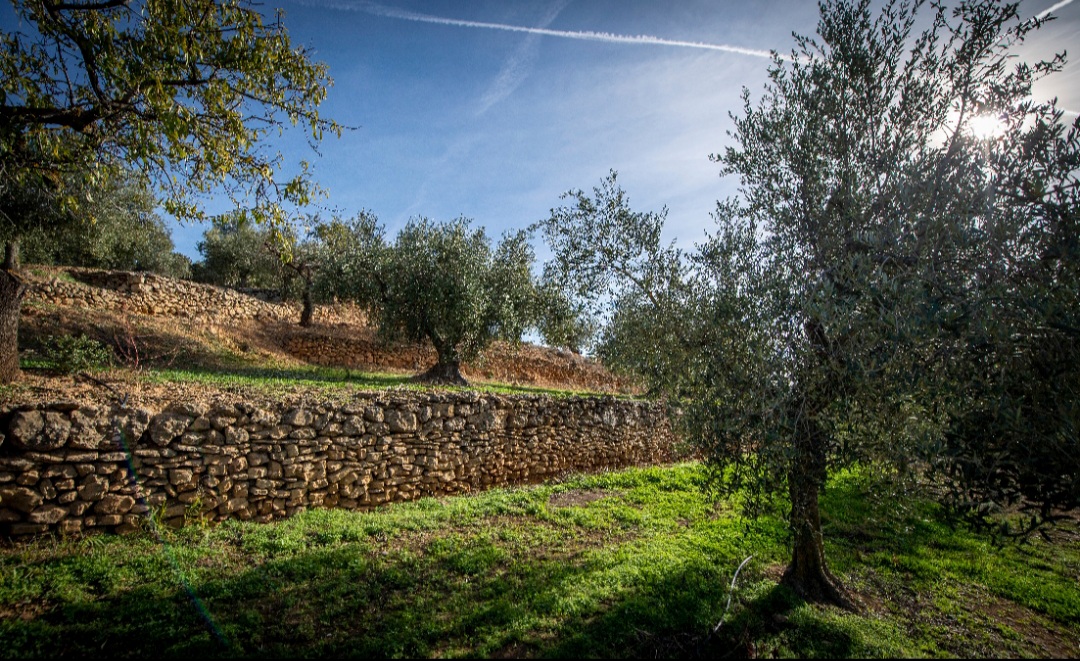
©Molí Coloma
What are the characteristics of the territory and the climatic conditions that make your production special?
To produce Molí Coloma oils we have several farms, all influenced by the Mediterranean climate and the sea. In them, we find mild and humid winters which contrast with dry summers. These elements, and a soil generally poor in organic substance, give our oils a unique character, making them a truly harmonious product.
What are the olive varieties of your olive groves?
At Molí Coloma, we currently work with three varieties of olives: Arbequina, the most widespread variety in our area, Arbosana, a very rustic variety recovered in recent years, and the Koroneiki variety, from Greece, which has adapted very well to our latitudes.
We also work with a range of Signature Oils, in which our Almazara Master gives personality to two oils (and one will soon be back on the market): Flor d’Oli, the first pressing oil, pure olive juice, and the Maestro de Almazara oil, with which we work with the three varieties, creating a coupage that reflects all the nuances of the different varieties, perfectly harmonizing sweet, bitter and spicy.
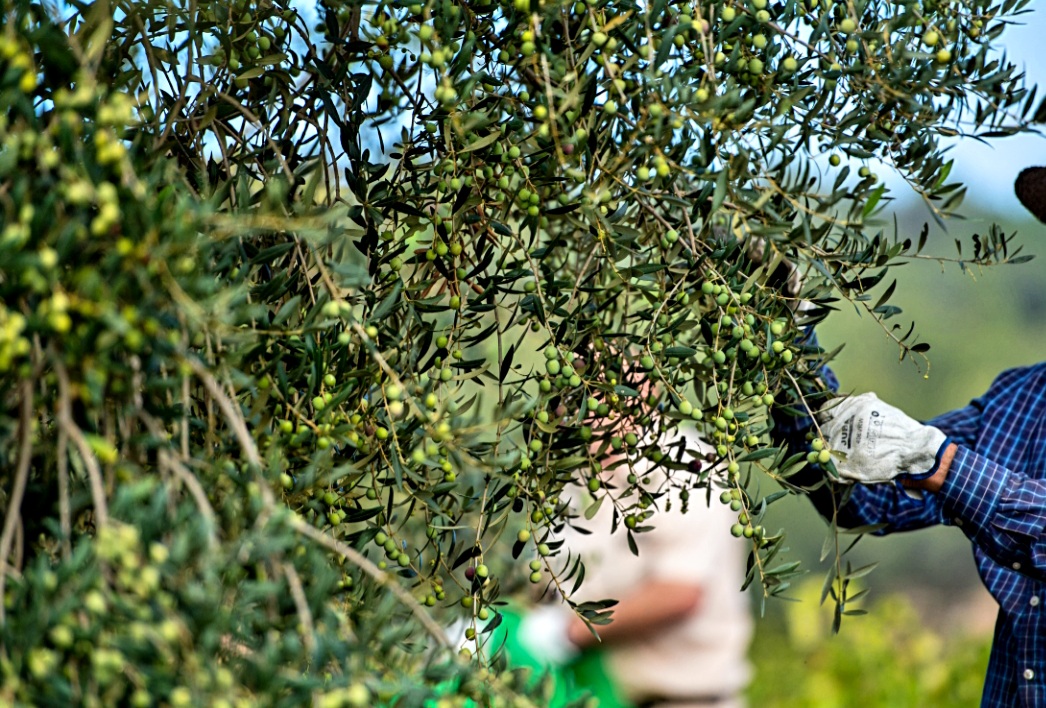
©Sergio Ros-Molí Coloma
What are the characteristics of each of the three varieties of Molí Coloma oil?
The Arbequina variety, combined with our climate, and the maritime influence we talked about before, produces very aromatic oils, where the fruity ones predominate, and with a clearly sweet sensation in the mouth, where spicy and bitter practically do not appear, resulting very harmonious, and very pleasant on the palate, perfectly matched to all types of dishes such as vegetables, fish or meat.
Arbosana, a variety recovered in recent years, originally from Penedés (Catalonia). It produces a high quality oil, with a medium / high green fruitiness and with a greater presence of bitter and spicy than the Arbequina variety, due to the higher concentration of polyphenols. Our Arbosana, due to its clear marine influence, releases aromas of green grass, with nuances of green walnuts and green tomatoes. Very particular and interesting variety to be used raw to accompany salads, pasta or hummus.
Koroneiki, a Greek variety, which has adapted very favorably in our area, obtaining very interesting oils. We work it by harvesting the olive at its point of optimal ripeness, in order to convey its characteristic aroma of cut green grass. We also find aromas of artichoke, or even green bananas. Spicy and bitter, of medium/high intensity, clearly stand out. Perfect variety to accompany white fish, as well as to accompany something so typical of our area, such as tomato bread.
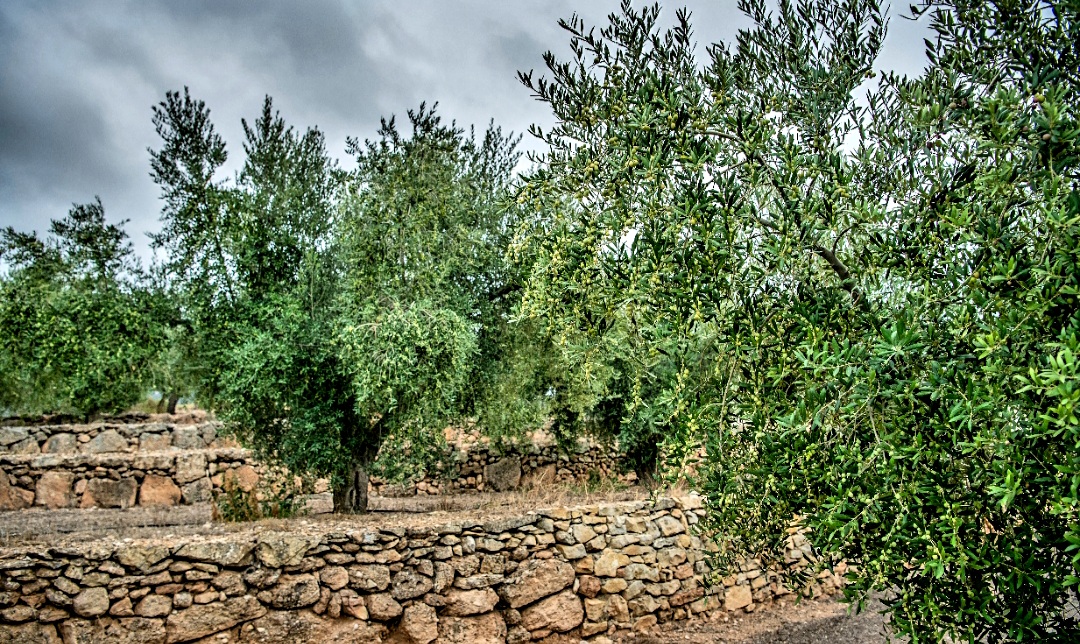
©Molí Coloma
How do you spend a typical day at harvest time and another during the year?
Our work in Molí Coloma during the harvest season is very intense. As lovers of Extra Virgin Olive Oil, it is time to immortalize the work done throughout the year. It is important to harvest at the optimal moment, pampering the entire production process, from the farm to the mill, all to obtain a high quality product, and with the desire to share it with consumers. It is interesting to underline that we operate all year round in the control and management of farms to obtain quality results, for us it is a whole cycle, a work that begins in the field, and ends in the dishes (kitchens) of consumers.
From harvest to production, what makes Molí Coloma oils special?
At Molí Coloma we work with four very important aspects, which we believe are essential for producing quality oils.
First, the control of the field, which allows the production of high quality fruit. Hence, harvesting at its optimum point. Third, minimize the time between harvesting and grinding, to work with the fruit in its freshest state. And, finally, an exhaustive control in the mill.
We believe that these points, together with the climatic peculiarities of our territory, give us the perfect elements to produce a high quality oil.


